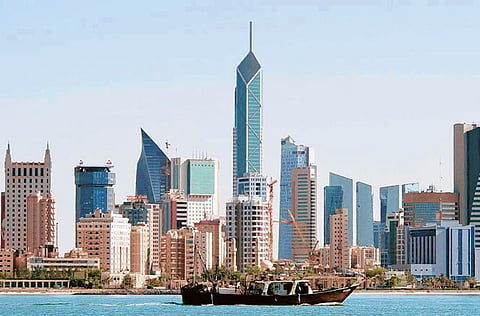Better governed state-owned enterprises to drive Gulf growth
Entities already account for 20% to 50% of value added in region

Dubai State-owned enterprises (SOEs) account for 20-50 per cent of the economic value added across the Gulf region and measures to improve the governance of these entities are crucial in addressing the region's economic priorities, the Organisation for Economic Development and Cooperation (OECD) said in a report Tuesday.
Apart from the hydrocarbons sector, the emergence of large SOEs in the Gulf is a relatively new phenomenon. The establishment of some of the largest SOEs followed decisions by governments to nationalise strategic assets. This is the case for most oil and gas companies in the GCC countries.
According to the OECD, the evolution of state-owned enterprises has had a significant impact on all economies across the Middle East and North Africa.
Despite ambitious privatisation programmes in some countries for over two decades, the socio-economic impact of SOEs has not necessarily waned.
"Overall, it is estimated that state-owned enterprises continue to account for approximately half of the economic activity in the region. In the GCC countries, the contribution of SOEs to GDP is also substantial and is probably underestimated, considering that the largest hydrocarbon SOEs are not listed and disclose very little information publicly," said Alissa Amico, Corporate Affairs Division (Middle East and North Africa) in the OECD's Directorate of Financial and Enterprise Affairs.
In the Gulf countries, a reasonably good indicator of the importance of the SOE sector is the size of the hydrocarbons sector, which usually is entirely state-controlled.
For instance, in Qatar, the oil and gas sectors collectively contribute more than half of the country's GDP. In Kuwait this is estimated at 65 per cent, according to an OECD study. Following recent listings of minority stakes, the number of listed SOEs in the Mena region has grown. Statistics show 32 of the top 100 listed companies in the region — corresponding to approximately 45 per cent of total market capitalisation of these companies — remain under partial control of the state.
The number of non-listed SOEs significantly exceeds the number of listed ones in all Mena countries. In 17 Mena jurisdictions, it is estimated that there are close to 2,000 non-listed SOEs.
The OECD study shows that in the GCC countries, despite some divestments, SOEs have actually grown during the last decade.
This is attributable to the establishment of new SOEs — often with the explicit or implicit goal of industrial development.
"While Dubai, with its large real estate developers such as Nakheel, is a prime example, it is certainly not alone in entrusting local SOEs with sizeable infrastructure development responsibilities," the study said.
The growth of sovereign wealth funds (SWFs) which have large stakes in SOEs and private companies, both domestically and abroad, compounds the difficulty of estimating the size and composition of state-owned sectors in the Gulf countries.
The OECD study observed that the role of SWFs in influencing corporate governance of SOEs can generally be characterised as positive.
First, the governance structure of SWFs is entirely separate from that of the line ministries or sectoral regulators. Second, their predominantly commercial objectives are less susceptible to political decision making.
"In addition to preserving the wealth of GCC countries for future generations, SWFs underpin government creditworthiness, serving as a buffer against fiscal shocks and helping to generate revenues that are not dependent on natural resource prices," said Nasser Saidi, executive director of the Hawkamah Institute for Corporate Governance.



